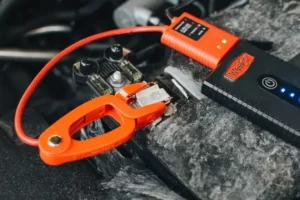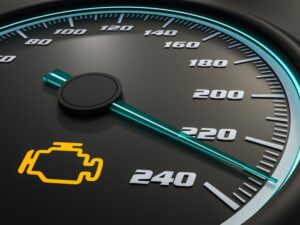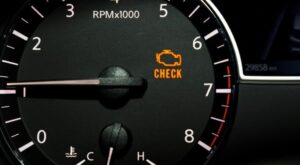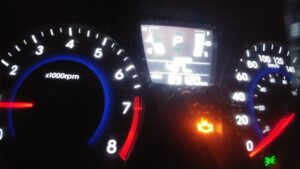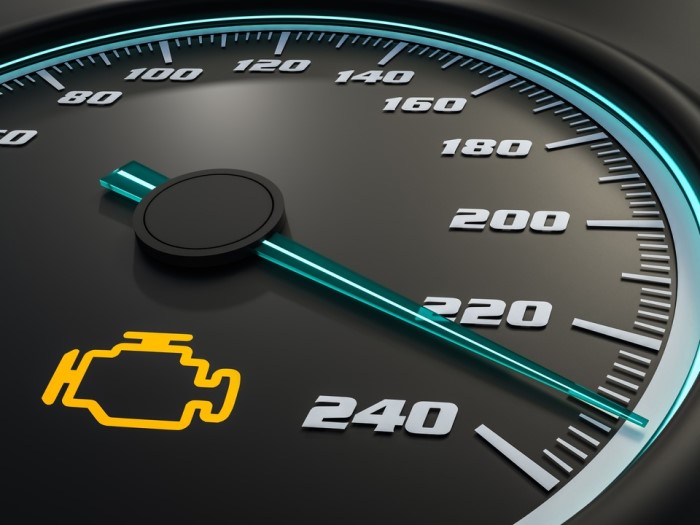
When it comes to owning a Volkswagen vehicle, encountering the check engine light can be a cause for concern. This indicator, located on your dashboard, is designed to alert you to potential issues with your vehicle’s engine. Understanding what the check engine light means and how to address it is crucial for maintaining the performance and reliability of your Volkswagen. In this article, we will delve into the common causes of the check engine light, discuss the importance of addressing it promptly, and provide you with helpful tips on what to do when the check engine light illuminates in your Volkswagen.
1. Understanding the Check Engine Light
The check engine light is an indicator on your Volkswagen’s dashboard that illuminates when the onboard computer system detects a potential issue with your vehicle’s engine. It serves as a warning sign that requires your attention to identify and resolve the underlying problem promptly.
2. Common Causes of the Check Engine Light
The check engine light can be triggered by various factors. Some of the most common causes include:
- Faulty oxygen sensors
- Loose or damaged gas caps
- Issues with ignition coils
- Problems with the catalytic converter
- Malfunctioning mass airflow sensors
3. Importance of Addressing the Check Engine Light
Addressing the check engine light promptly is crucial for several reasons. Ignoring the warning can lead to more severe problems down the line and potentially result in costly repairs. It is essential to take action as soon as the light illuminates to prevent further damage to your Volkswagen’s engine and maintain optimal performance.
4. What to Do When the Check Engine Light Illuminates
When the check engine light comes on, here are some steps you can take:
- Step 1: Check for obvious issues: Start by inspecting your vehicle for any visible problems, such as a loose gas cap or disconnected sensors.
- Step 2: Ensure safety: If your Volkswagen is exhibiting abnormal behavior, such as loss of power or strange noises, pull over to a safe location and turn off the engine.
- Step 3: Check the manual: Consult your Volkswagen owner’s manual for any specific instructions related to the check engine light.
- Step 4: Use a diagnostic tool: Consider using a diagnostic tool to retrieve error codes from your vehicle’s onboard computer system.
- Step 5: Seek professional help: If you’re unable to identify or resolve the issue yourself, it’s recommended to take your Volkswagen to a qualified technician for further diagnosis and repair.
5. Regular Maintenance and Check-Ups
Regular maintenance and check-ups play a crucial role in preventing the check engine light from appearing. Adhering to your Volkswagen’s recommended maintenance schedule, which includes oil changes, filter replacements, and system inspections, can help detect and resolve potential issues before they escalate.
6. The Role of Diagnostic Tools
Diagnostic tools, such as OBD-II scanners, can be valuable resources when dealing with the check engine light. These tools enable you to retrieve error codes and gain insights into the specific problem affecting your Volkswagen. They provide a starting point for further investigation or allow you to address simpler issues yourself.
7. Dealing with O2 Sensor Issues
Oxygen sensors (O2 sensors) play a crucial role in measuring the oxygen levels in your vehicle’s exhaust gases. When these sensors malfunction, they can trigger the check engine light. Replacing faulty O2 sensors is necessary to restore proper engine performance and reduce emissions.
8. Addressing Loose or Damaged Gas Caps
A loose or damaged gas cap is a common trigger for the check engine light. Ensuring that your gas cap is tightened properly after refueling can prevent this issue. If your gas cap is damaged, consider replacing it to maintain a proper seal and prevent fuel evaporation.
9. The Impact of Faulty Ignition Coils
Faulty ignition coils can lead to engine misfires and trigger the check engine light. These coils are responsible for producing the high voltage necessary for spark plug ignition. Replacing malfunctioning ignition coils can help restore smooth engine operation and prevent further damage.
10. Resolving Catalytic Converter Problems
Catalytic converters play a vital role in reducing harmful emissions. When they fail, the check engine light may illuminate. It is essential to address catalytic converter issues promptly to comply with emissions regulations and prevent damage to other engine components.
11. The Significance of Mass Airflow Sensor Malfunctions
Mass airflow sensors measure the amount of air entering the engine to ensure proper fuel-air mixture. When these sensors malfunction, they can affect engine performance and trigger the check engine light. Cleaning or replacing faulty mass airflow sensors is necessary to maintain optimal engine function.
12. The Dangers of Ignoring the Check Engine Light
Ignoring the check engine light can lead to severe consequences. Unresolved issues can cause further damage to your Volkswagen’s engine, decrease fuel efficiency, and potentially leave you stranded on the road. Prompt action is crucial to avoid more extensive repairs and ensure your safety.
13. Seeking Professional Help
While it’s possible to address some check engine light issues on your own, seeking professional help is recommended for complex or unfamiliar problems. Qualified technicians have the expertise and specialized tools to diagnose and repair Volkswagen engine issues effectively.
14. Five Common FAQs About the Volkswagen Check Engine Light
Q1: Can I drive my Volkswagen with the check engine light on?
Driving with the check engine light on is not recommended. It’s best to address the underlying issue promptly to prevent further damage and maintain optimal performance.
Q2: Why did my check engine light turn off by itself?
In some cases, the check engine light may turn off on its own if the issue was temporary or resolved. However, it’s still essential to have your Volkswagen checked by a professional to ensure everything is functioning correctly.
Q3: How much does it cost to fix the check engine light in a Volkswagen?
The cost of fixing the check engine light can vary depending on the specific issue and the required repairs. It’s best to consult with a qualified technician who can provide an accurate estimate based on your Volkswagen’s needs.
Q4: Can I use a generic OBD-II scanner for my Volkswagen?
Yes, generic OBD-II scanners can retrieve basic error codes from your Volkswagen. However, for more in-depth diagnostics and specialized Volkswagen-specific codes, it’s recommended to use a scanner designed for Volkswagen vehicles.
Q5: Will disconnecting the battery reset the check engine light?
Disconnecting the battery can temporarily reset the check engine light, but it won’t fix the underlying issue. It’s important to address the problem to prevent further complications.
15. Conclusion
The check engine light in your Volkswagen is a crucial indicator that requires your attention. By understanding the common causes and taking prompt action when it illuminates, you can ensure the longevity, performance, and safety of your vehicle. Regular maintenance, proper diagnosis, and seeking professional help when needed are key in addressing check engine light issues effectively.


